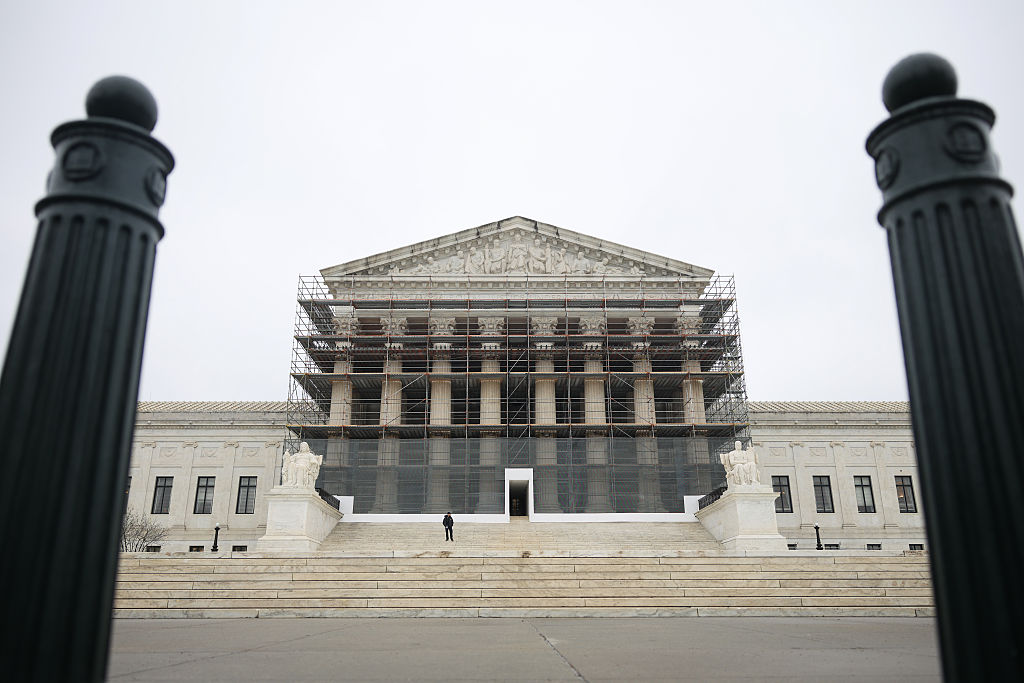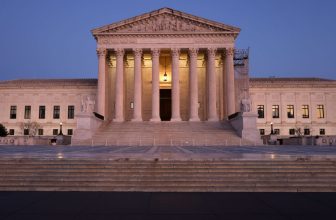
The Supreme Court on Monday morning sent the case of a Mississippi man convicted of abusing his daughter back to the state courts for another look. It also reversed, without briefing on the merits or oral argument, a ruling by a federal appeals court in favor of a Maryland man convicted of second-degree murder. The brief, unsigned opinions in Pitts v. Mississippi and Clark v. Sweeney came as part of a list of orders from the justices’ private conference on Friday, Nov. 21.
As SCOTUSblog reported earlier, the justices did not act on the Trump administration’s petitions for review asking the court to weigh in on the legality of President Donald Trump’s executive order ending birthright citizenship. The court could consider those petitions again as soon as Dec. 5.
In the case of Jeffrey Pitts, his daughter testified at his trial – over Pitts’ objection but pursuant to a state law – from behind a screen. When Pitts was convicted, he appealed, arguing that the Sixth Amendment’s confrontation clause, which gives defendants in a criminal trial the right to confront the witnesses against them, required the trial court to find that the screen was necessary in his specific case.
The Mississippi Supreme Court ruled against him, but on Monday the Supreme Court reversed and sent the case back for a new look. The confrontation clause, it explained in a five-page, unsigned opinion, “tolerates screening in child-abuse cases only if a court ‘hear[s] evidence’ and issues a ‘case-specific’ finding of ‘[t]he requisite . . . necessity’” – something that did not happen in this case.
Having said that, the Supreme Court made clear that Pitts was not necessarily entitled to a new trial. Instead, it wrote, when the case returns to the state courts, the state can argue – and the Mississippi Supreme Court can consider – whether the error of having Pitts’ daughter testify from behind a screen ultimately did not affect the outcome of his trial, so that a new trial might not be required.
The court also weighed in in the case of Jeremiah Sweeney. Sweeney went to federal court, seeking post-conviction relief, after he was unsuccessful in overturning his conviction in state court. A federal district judge turned down his bid, but the U.S. Court of Appeals for the 4th Circuit reversed that ruling and “ordered a new trial, relying on a claim that Sweeney never asserted” – which, the Supreme Court ruled on Monday, was an error. “The parties,” the court explained in a brief, unsigned opinion, “‘frame the issues for decision,’ while the court serves as ‘“neutral arbiter of matters the parties present.”’”
The Supreme Court reversed the 4th Circuit’s decision and sent Sweeney’s case back to the lower court for it to take another look in light of the court’s opinion.
Additionally, the Supreme Court, once again, rejected a bid for review of a case asking the justices to overturn the Feres doctrine, which prohibits lawsuits by military personnel for injuries suffered as part of their military service. The petition for review was filed by the family of an Air Force staff sergeant who was killed while driving home to have lunch with his family.
Justice Sonia Sotomayor filed a statement regarding the court’s decision to deny review. She indicated that although the doctrine “is a difficult decision to justify,” she agreed with the decision to deny review “out of respect for the Court’s rules of stare decisis” – the idea that courts should not generally overturn their prior cases unless there is a good reason to do so.
As he has in other cases presenting requests to overrule the Feres doctrine in recent years, Justice Clarence Thomas dissented from the decision to deny review. “For more than 38 years,” he wrote, “this Court has given no clarity to a doctrine it created.”
Justice Neil Gorsuch indicated, without offering an explanation, that he would have granted the family’s petition.
Cases: Beck v. United States, Pitts v. Mississippi, Clark v. Sweeney
Recommended Citation:
Amy Howe,
Supreme Court issues opinions on confrontation clause, post-conviction relief,
SCOTUSblog (Nov. 24, 2025, 11:22 AM),
https://www.scotusblog.com/2025/11/supreme-court-issues-opinions-on-confrontation-clause-post-conviction-relief/






